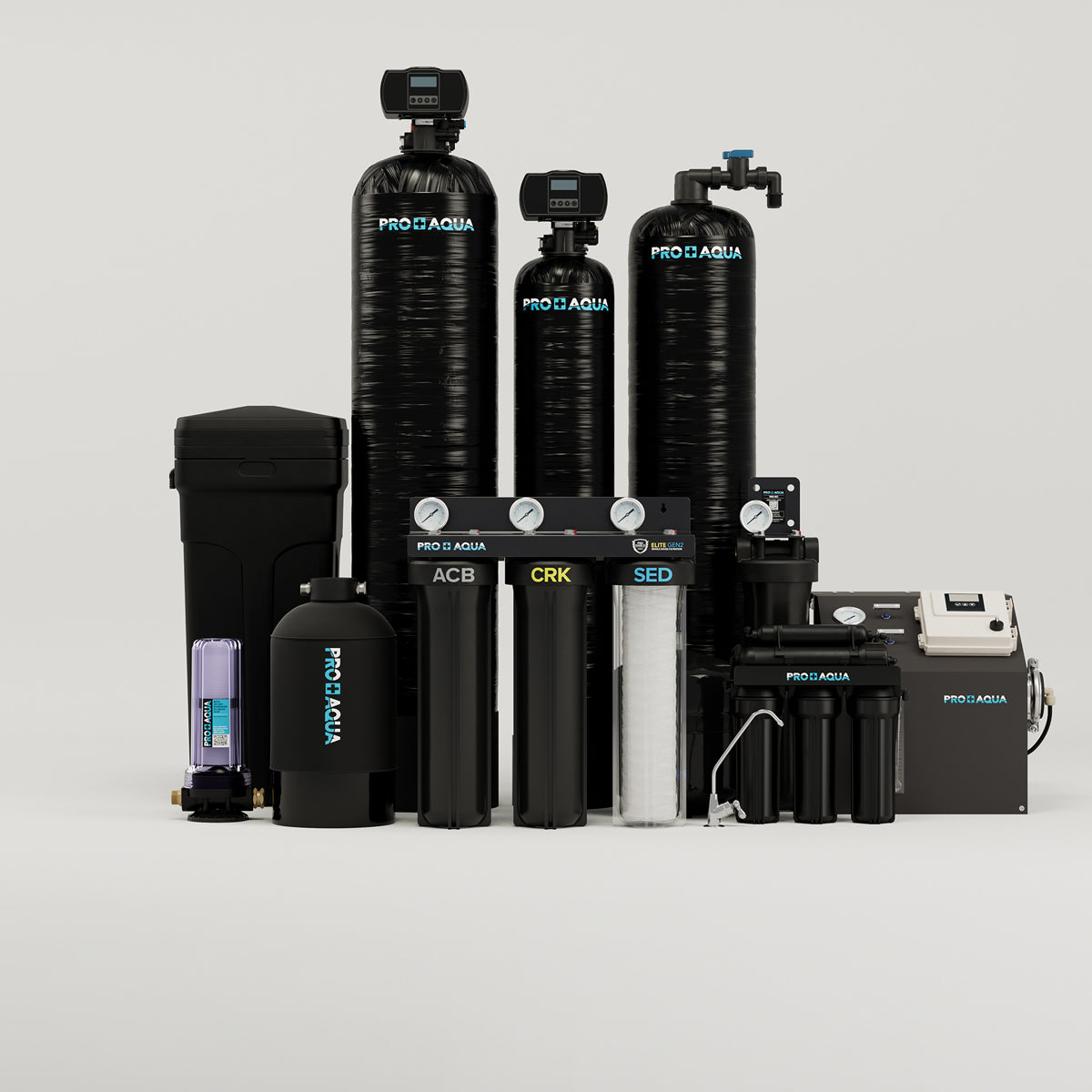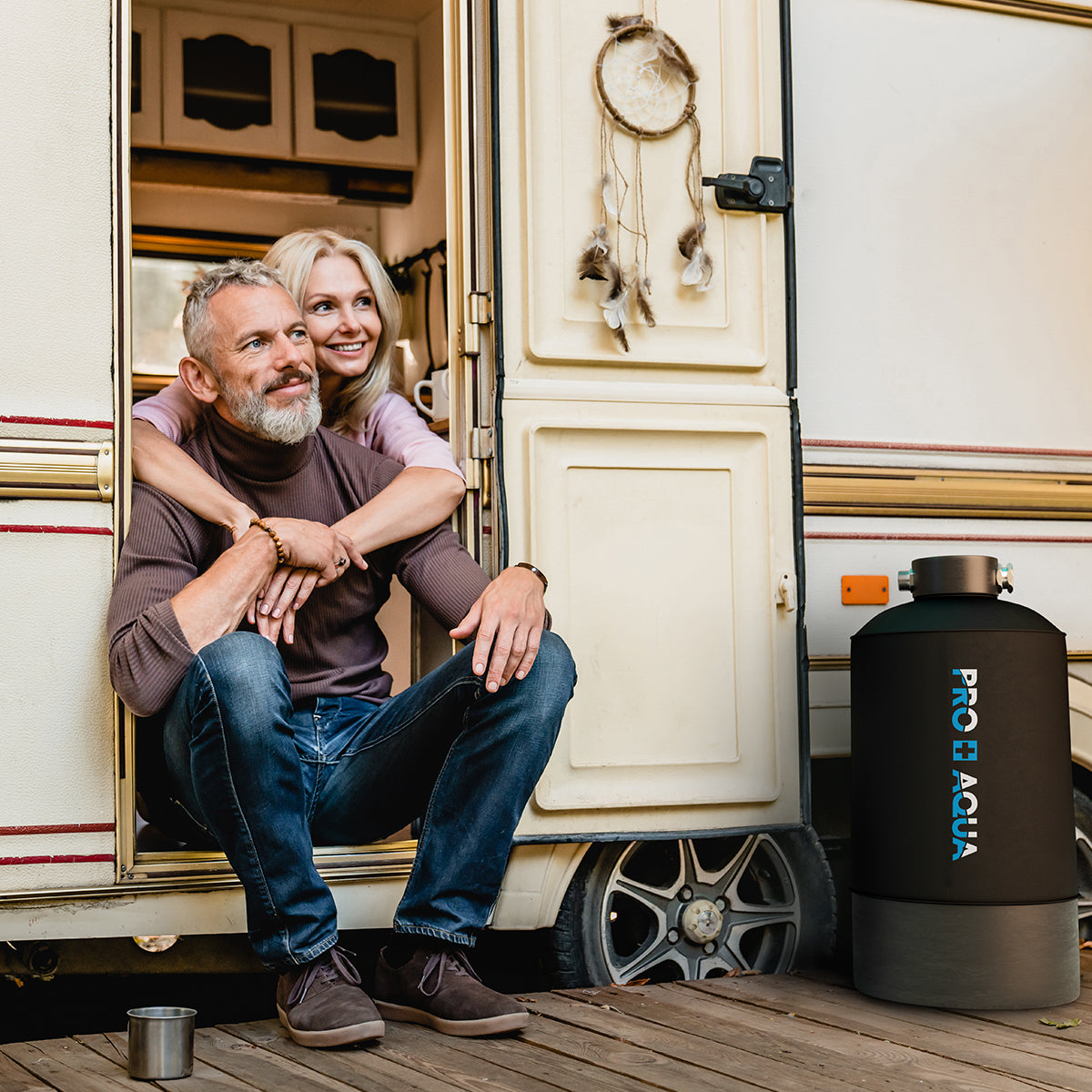
Salt-Free Water Softener vs. Salt-Based: A Homeowner's Guide
Salt free softener or salt free water conditioner systems transform hard minerals without removal, while salt based water softener system options use ion exchange for complete mineral elimination a...

Hard Water Beware: PRO+AQUA Expands Softener System Lineup
Now available—water softener systems in 6 sizes, plus city and well water filtration bundles for cleaner, softer water. Discover the full lineup.

Whole House Water Filtration: Tackle Iron, Scale & Sediment
Whole house water filtration protects your home from sediment in water, scale in water, and iron, keeping every faucet flowing clear and soft. A high-performance water softener system for a home pr...

Why Choose RinseMaster? What PRO+AQUA Offers Above Competitors
Tired of spotty results and resin refills after every wash? Discover why PRO+AQUA’s RinseMaster beats the competition in quality, performance, and value.

The True Cost of Bottled Water for Families (& How to Save with Filters)
The cost of bottled water adds up fast—especially for families. Discover how switching to filtered water can save money and reduce plastic waste this school year.

The Rise of Salt-Free Water Softener Systems: Who Can Benefit
Tired of hard water stains and dry skin? Discover why salt-free water softeners are a smart, low-maintenance solution for new homeowners.



